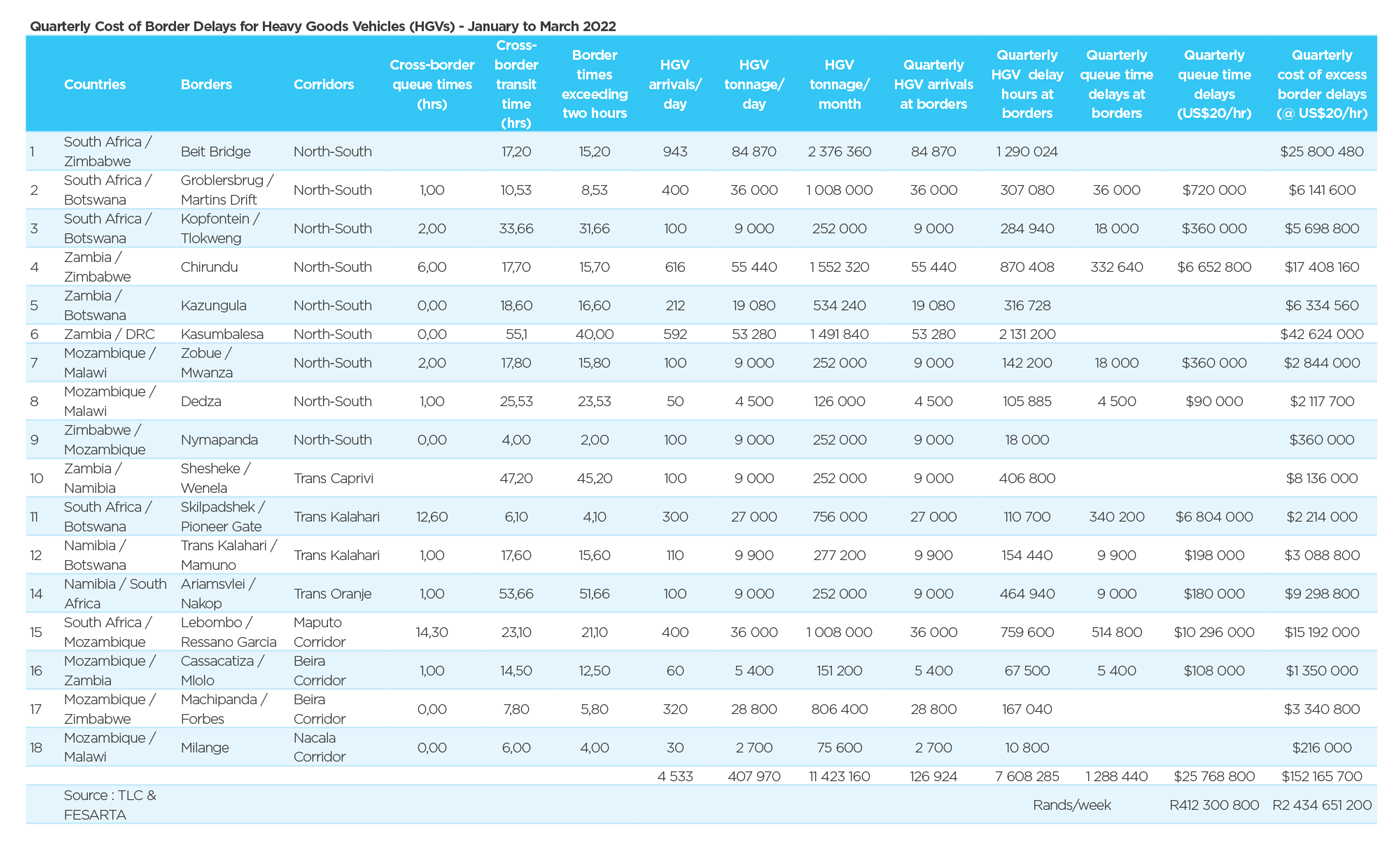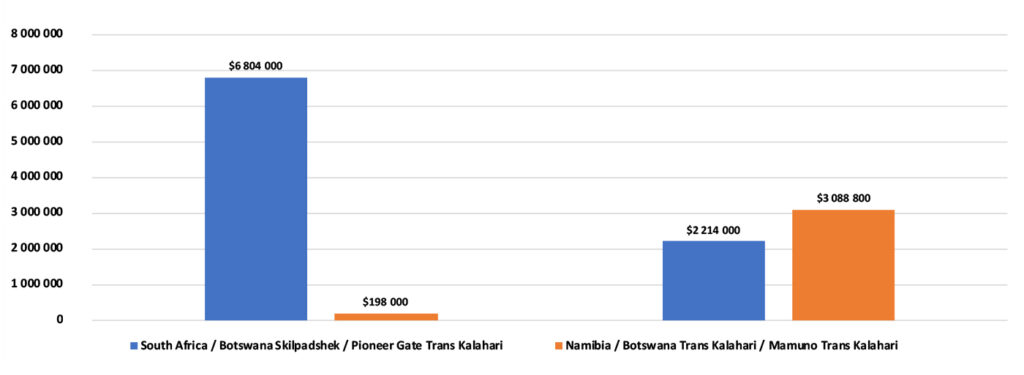Delays are costing billions!
Delays are costing billions!
Delays at regional borders in Southern Africa are costing the cross-border transport industry billions! A staggering amount – over R4,29 billion – was lost in the first quarter of 2022 alone, writes MIKE FITZMAURICE.
After more than four months of fieldwork gathering data on cross-border trade via the road modality in Kenya and Malawi, the Federation of Southern African Road Transport Associations (FESARTA) is now able to provide some essential feedback concerning the state of the region. Many corridors have seen significant trade flow increases, most notably in the volume moving through the Port of Mombasa. Indeed, the port now handles some 34 million tonnes of cargo, surpassing Durban. Furthermore, the Malaba border crossing accepts some 2 000 trucks a day. Volume increases are also experienced in other corridors:
- Beira Corridor is up by 63%.
- Dar Corridor is up by 56%.
- Walvis Bay Corridor through Katima Mulilo is up by 53%.
- The Northern Corridor from Mombasa through Malaba Border Post, into Uganda and onwards to Rwanda and DRC, has increased by around 32% since 2019. This is largely due to increased port capacity, which has seen cargo volumes rise by 26% (from 27 million tonnes per annum in 2019 to 34 million tonnes per annum in 2021). The port of Mombasa is now Africa’s busiest port, having superseded the Port of Durban, which currently has a capacity of around 32 million tonnes per annum.
Unfortunately, despite these increases in the east, significant challenges remain, especially in the south. Recently, a number of issues have continued to hamper cross-border road trade, including:
- Kasumbalesa has experienced very long queues because of the border renovations. For example, anywhere from 500 to 1 000 trucks may be in the queue (both north and southbound), at any time. This can take up to eight days to clear. Consequently, some drivers whose entry card and insurance expired had to pay $175 for re-entry and $150 for insurance. In addition, transporters had to traverse terrible roads and police checkpoints to bypass the renovations.
- System downtime has been experienced in Zambia.
- The manual processing of Temporary Trade Permits (TIPs) for all trucks entering Mozambique has been causing unnecessary delays and costs to South African cargo owners. Of even more concern is the fact that the implementation of the single-entry TIP is in contravention of the SADC Protocol on Trade, specifically Article 3. Fortunately, talks are ongoing between the two countries and the plan to open the border for 24/7 operations is moving forward with the conducting of viability studies.
Regional cross-border road trade has made significant strides since the pandemic’s hard lockdowns. However, considerable work still lies ahead for the region to realise its dreams, as proposed by the African Continental Free Trade Area (AfCFTA).



Published by
Mike Fitzmaurice
focusmagsa




